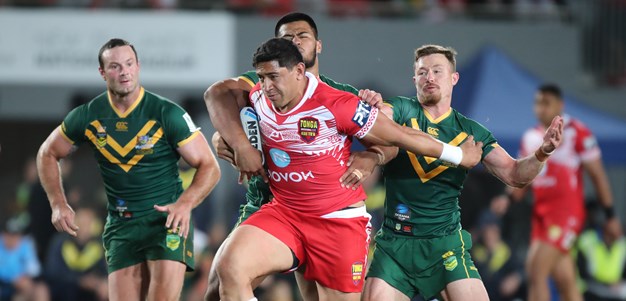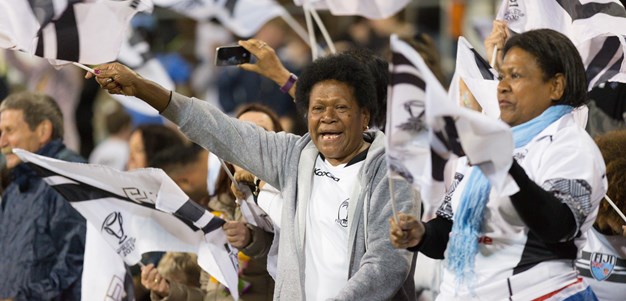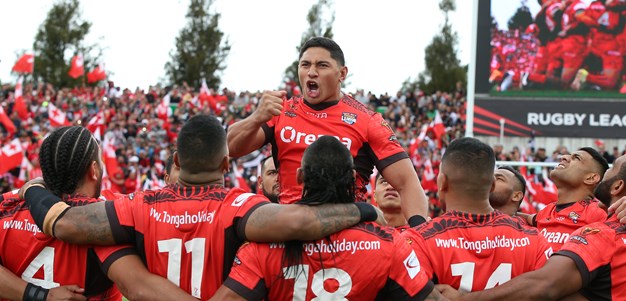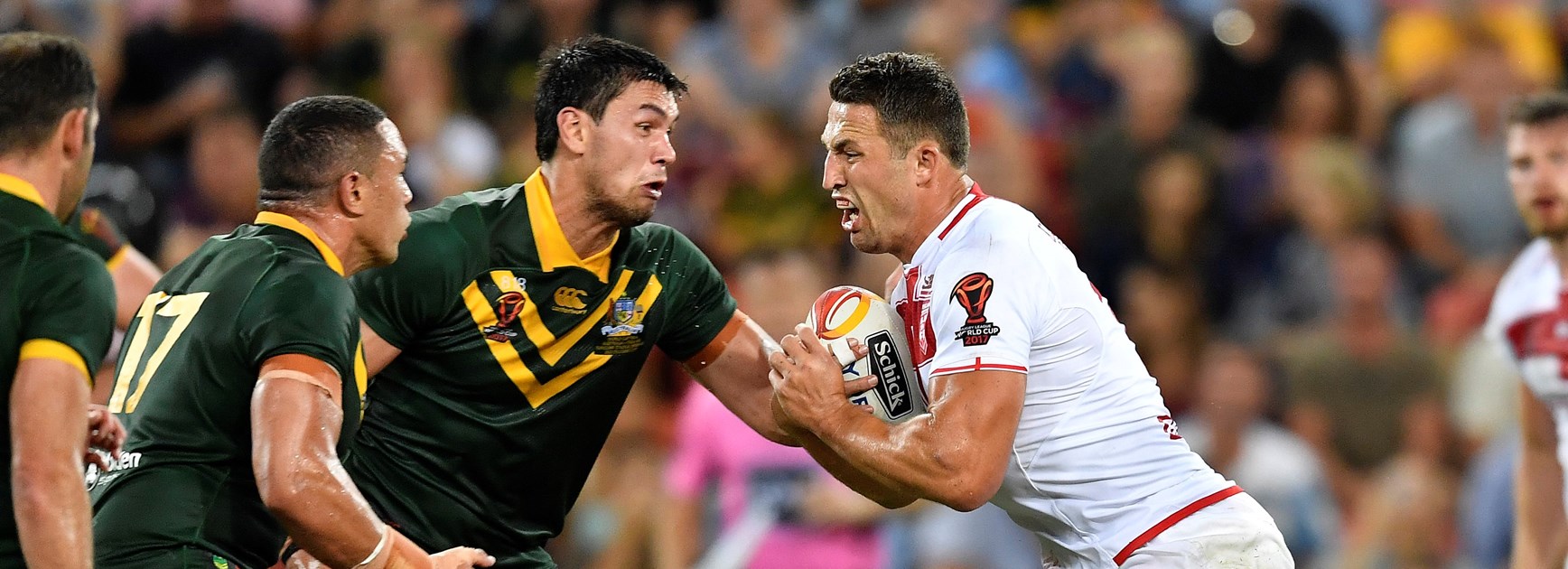
Australia is set to undertake a Kangaroos Tour to Great Britain in 2020 ahead of the next World Cup after a meeting of the RLIF in Singapore on the weekend agreed to introduce a rolling calendar of international fixtures.
The NRL had recently announced plans to revive Kangaroos Tours next year but organisers of the 2021 World Cup in England believe a visit by Australia at the end of the 2020 season would help build momentum for the tournament.
A proposed Lions Tour of the southern hemisphere by Great Britain is now expected to take place next year and include Tests against Australia, New Zealand, Papua New Guinea and possibly another Pacific nation.
An inaugural Nines World Cup has been scheduled for 2019 and the NSW Government last week announced it would bid for the tournament, along with the 2029 Rugby League World Cup.
Agreeing on a long-range calendar of international matches and tournaments headed the agenda at the meeting attended by representatives of the ARLC, NZRL, RFL, Asia Pacific Rugby League Confederation (APRLC) and Rugby League European Federation (RLEF).
Key elements of the calendar include:
- World Cups in 2021 and 2025
- Kangaroos Tour to UK in 2020
- Kiwi Tours to UK in 2018 and 2022
- Lions tours to southern hemisphere in 2019 and 2024
- Nines World Cups in 2019 and 2023
- 2019 Championships for the Pacific nations in a mid-and-end-of-season format
- 2018 European Championship (and then at two-year intervals)
- 2018 Australia v New Zealand Test (annually to 2022)
- 2020 New Zealand fixture(s) in the southern hemisphere
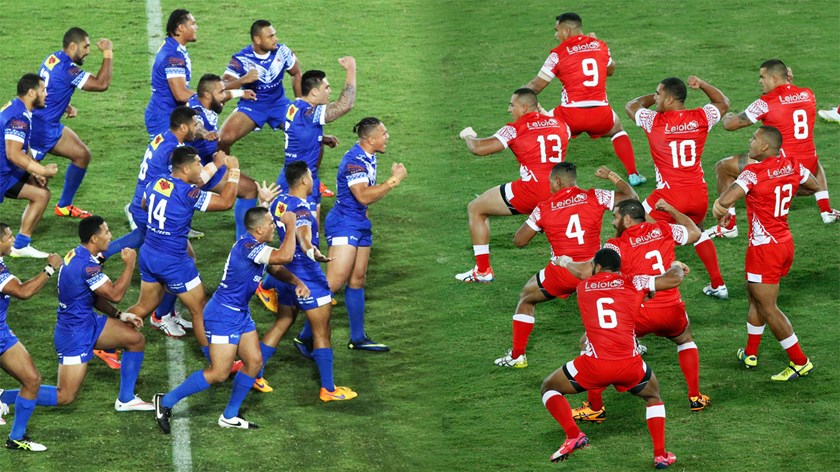
Besides locking in matches for the top-ranking nations, the RLIF board also ensured that the international calendar offered a platform for other nations to compete against top tier countries, while addressing player welfare issues and commercial considerations.
"There's clearly still some detail to be finalised, but this is a fantastic announcement that has been a long time coming. It should give great heart and confidence to our international community," RLIF Chairman John Grant said.
"It reflects the broad diversity that exists across our RLIF Member nations and we believe it can provide the certainty our fans, players and commercial stakeholders need to make long term commitments to international rugby league."
The calendar does not make mention of North America but it is understood the proposed Test between Australia and Tonga in New York at the end of this season is unlikely, while there is scope for England and New Zealand to fulfil their three-year agreement to play in the United States.
However, there is likely to be more support for the annual Test if it moves to California - possibly San Diego, Los Angeles or San Francisco - and is played at the end of the season.
Officials from New Zealand and England tabled reports into June's Denver Test which found that the performance of the players involved did not appear to have been affected by the travel or playing at altitude.
The Denver Test is set to become a catalyst for the establishment of minimum standards for the welfare of players on national duty, with data collected by the NZRL and RFL to be included in a review into the process and criteria for sanctioning international matches.
The review, to be headed by RLIF CEO Nigel Wood, will seek input from the RLPA and NRL and Super League clubs as well as lower tier clubs and national bodies.
"This is a very significant piece of work that will provide consistency and benchmarks to which our nations must aspire to ensure international rugby league performs at the levels our players, clubs and fans expect," Wood said.
"The Denver Test exposed all of us alike to this performance standard and has been a positive catalyst for this review."
There will also be a review of international eligibility rules to encourage players to commit to second tier nations, as Jason Taumalolo and Andrew Fifita did with Tonga at last year's World Cup.
The RLIF board also agreed on a range of constitutional changes which will be considered for adoption at the RLIF general meeting in the UK in November after a consultation period beginning in September.
Grant indicated he would step down from the RLIF board after the November meeting, which is expected to agree to increase the number of directors from eight to 11, comprising of:
- Three independent directors drawn from both the northern and southern hemispheres, one of whom will be Chair;
- Two directors nominated by each of the national federations that operate the professional leagues, the RFL and ARLC, with one of these being through RLEF and APRLC respectively;
- Three from the RLEF one of whom will be an RFL appointed director of RLEF;
- Three from the APRLC one of whom will be an NZRL appointed director of APRLC and another of whom will be an ARLC appointed director of APRLC.
It was agreed also that directors should be appointed for three-year terms for a maximum of three terms.
Grant said the changes would ensure the RLIF board adopted best practice in independence and diversity, included a range of appropriate skills and provided a geographic balance.

